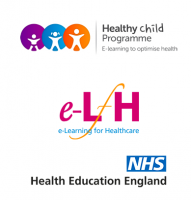The Assessment of Common Mental Health Problems



This session describes some of the important stages of assessing a young person presenting with emotional or psychological problems. It also identifies strategies for distinguishing transient minor psychological problems from more serious ones.
Learning Objectives
By the end of this session you will be able to:
- List the places where young people are most likely to present with different types of mental health problems and explain possible reasons for the apparent under-recognition of such problems
- Describe factors that may help distinguish minor transient, emotional, psychological and behavioural problems from more severe mental health disorders
- List ten key questions that can be useful in the assessment of a young person presenting with a mental health problem and begin to apply these in the evaluation of clinical scenarios
Mental health problems and disorders are common in adolescence but frequently go unrecognised by health professionals. Early recognition and management can potentially reduce the chance of further deterioration, limit the consequences, and lead to more rapid recovery.
Before commencing this session you should complete the following AH session:
- 10_001 Mental Health and Well Being in Adolescence (401-0046)
Dick Churchill is a GP in Nottingham and former Associate Clinical Professor at the University of Nottingham. He has both clinical and academic interests in the health of young people and in mental health issues. He is a member of the RCGP Adolescent Health Group and a founder of the Association for Young People’s Health.


- End of Life Care | Advance care planning | Advance...
- Posted By eIntegrity Healthcare e-Learning
- Posted Date: 2025-01-13
- Location:Online
- This session focuses on principles of good practice which underpin the appropriate and valid use of Advance Decisions to Refuse Treatment (ADRT), within an end of life care context. This session was reviewed by Fiona Rawlinson and Sarah Hanrott and last u
- End of Life Care | Advance care planning | Advance...
- Posted By eIntegrity Healthcare e-Learning
- Posted Date: 2025-01-13
- Location:Online
- This session builds on the principles of advance decisions to refuse treatment. It focuses on the practical steps involved in supporting patients requesting the development of an advance decision. This session was reviewed by Fiona Rawlinson and Sarah Han
- End of Life Care | Advance care planning | ACP in ...
- Posted By eIntegrity Healthcare e-Learning
- Posted Date: 2025-01-13
- Location:Online
- This session describes how the Preferred Priorities for Care tool may be used to facilitate advance care planning. This session was reviewed by Fiona Rawlinson and Sarah Hanrott, and last updated in February 2023.
- End of Life Care | Advance care planning | ACP and...
- Posted By eIntegrity Healthcare e-Learning
- Posted Date: 2025-01-12
- Location:Online
- This session provides an overview of the concept of illness trajectories and its influence on the advance care planning (ACP) process in end of life care. This session was reviewed by Fiona Rawlinson and Sarah Hanrott and last updated in February 2023.
- Acquired Brain Injury course
- Posted By eIntegrity Healthcare e-Learning
- Posted Date: 2025-01-12
- Location:Online
- This session will outline the causes and effects of acquired brain injury (ABI) in childhood. It wil...







